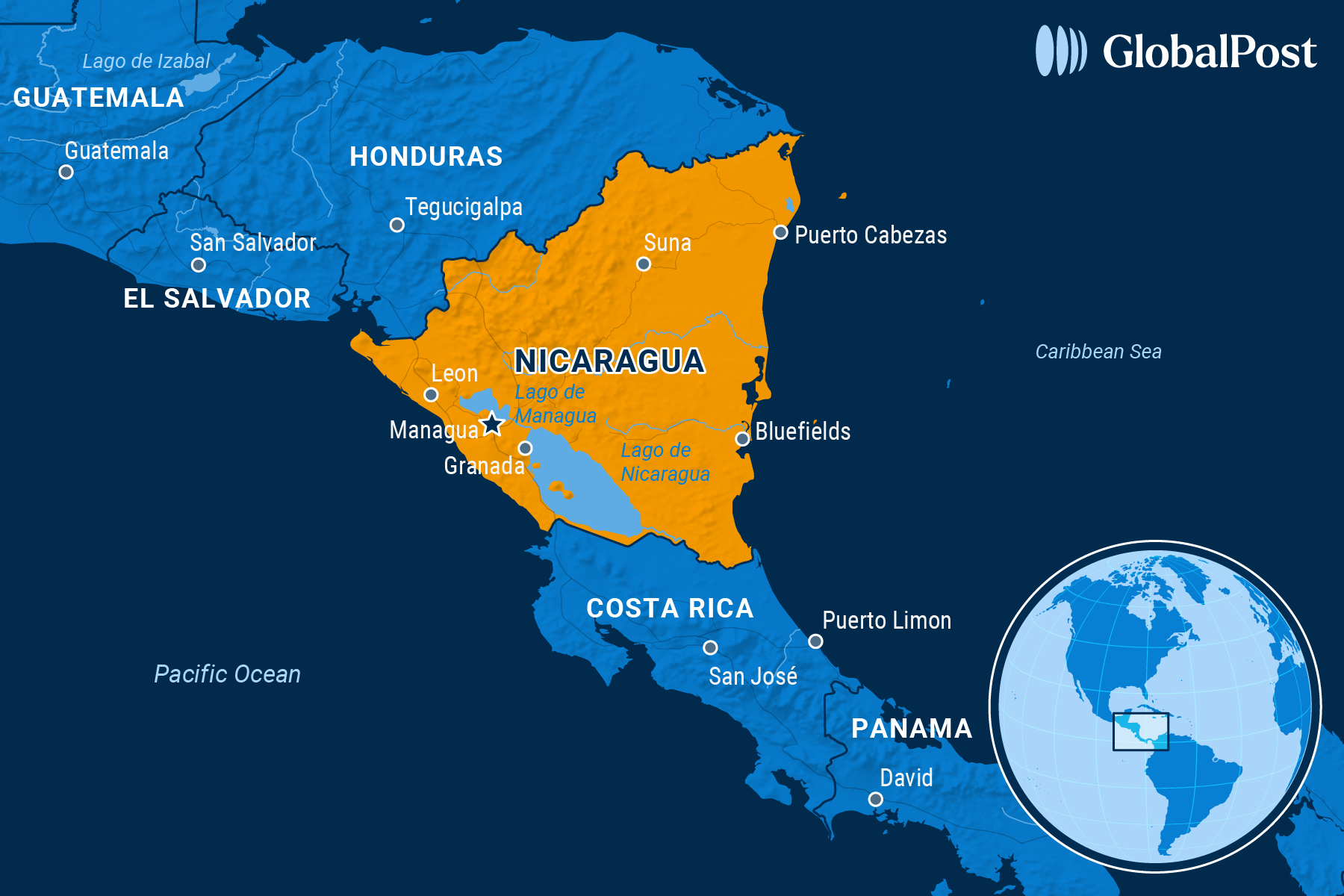NEED TO KNOW
The Guerrillas of Peace: How Nicaragua’s First Couple Cemented ‘Total Control’
NICARAGUA

Nicaraguan officials recently swore in 30,000 masked civilians as “volunteer police,” a paramilitary force intended to help the country’s leaders crack down on the population.
Dressed in white shirts and black pants, with black ski masks, the individuals went into formation on the Plaza de la Fe in Managua, the country’s capital, to be sworn in as President Daniel Ortega and his wife, “co-president” Rosario Murillo, watched.
“We swear in this heroic volunteer police, guerrillas of peace,” said Murillo.
The new militia, made up of about 50,000 people, was created to support the security forces. It arises out of an overhaul of the constitution that took effect on Feb. 18 by the legislature controlled by the ruling Sandinista Front, led by Ortega.
It’s the latest move by the husband-wife team to take “total control” of the country.
The reform means that all branches of government are now under the control of the executive. It also elevated Murillo from vice president to “co-president,” and allows for unlimited vice presidents, which would guarantee presidential succession for Murillo and their family, in what some call a “family dictatorship.” A number of their children already hold top posts in the country.
The reform also expanded the presidential term to six years from five in a move that further consolidated the family’s firm grip on power.
The reforms have been defended by government allies as deepening a nearly 50-year-old revolution. “We have to go step-by-step and make it clear that Nicaragua’s government is a revolutionary government, even if that hurts some people’s feelings,” said Congressional leader Gustavo Porras.
Ortega, 79, rose to power as a leader of the leftist Sandinista guerrilla movement that overthrew the autocratic Somoza family dynasty in the late 1970s. After serving as president from 1985-1990, Ortega won office again in 2007 and is currently serving his fourth consecutive term.
With this latest reform, the Nicaraguan government dismantled the last remaining checks and balances and is “systematically executing a strategy to cement total control of the country through severe human rights violations,” United Nations officials said in a new report.
“The state and the ruling Sandinista party have virtually fused into a unified machine of repression with domestic and transnational impact,” said Jan Simon, chair of the Group of Human Rights Experts on Nicaragua established in 2022. “Ortega and Murillo operate a wide intelligence machine, surveilling the population and selecting the targets for the violation of rights, acting as ‘the eyes and ears’ that allow (the Nicaraguan government) to obtain and maintain total control over people.”
The crackdown began following the 2018 protests that were ignited by a social security overhaul and were met with violent repression by the state. During those protests, more than 300 people were killed in the violence, often perpetrated by heavily armed hooded men, whom the government called “the people.” The Ortega government calls the 2018 protests a coup attempt sponsored by Washington.
Since then, the Nicaraguan government “has deliberately transformed the country into an authoritarian state, where no independent institutions remain, opposition voices are silenced, and the population – both inside and outside Nicaragua – faces persecution, forced exile, and economic retaliation,” the UN officials said.
It has imprisoned political adversaries, religious leaders, journalists, civil rights activists and academics, then exiled them, stripping hundreds of their Nicaraguan citizenship and possessions. Since 2018, it has closed more than 5,000 organizations, largely religious, and forced almost 300,000 people to flee the country.
As repressive as it has been since 2018, observers say it’s due to get worse because of the new militia, which echoes the masked groups that roamed the streets during the 2018 protests.
Meanwhile, the government has been preventing Nicaraguans from returning to their country under a change in the immigration law that allows the denial of the entry of its citizens if they are considered a threat to the peace and security of the country, Voice of America reported.
Recently, US Secretary of State Marco Rubio blasted Nicaragua and other repressive regimes in the region, accusing them of being “enemies of humanity” and of causing a regional migration crisis.
Allan Bermudez, 54, once a university professor in Nicaragua, is part of that crisis. He did not choose to leave.
He told the Associated Press that he was imprisoned after being accused of conspiring against the government – the 2018 protests centered around university students. In February 2023, he was among 222 prisoners put on a flight to the United States without being told where they were going. The US allowed him to stay temporarily on a humanitarian parole program while he applied for asylum.
Currently, he works in a Dunkin’ Donuts and struggles to afford food or medicine or the funds to help his mother, wife and daughter who are in Nicaragua. He is stateless, which means he has no country, no passport and nowhere to go.
He applied for asylum last year, but said he hadn’t heard back as of the end of November. On Jan. 20, the US government tried to end the program. He can stay – temporarily.
“I can’t leave, my hands are tied,” he said. “All I can do is pray that God helps me.”
To read the full edition and support independent journalism, join our community of informed readers and subscribe today!